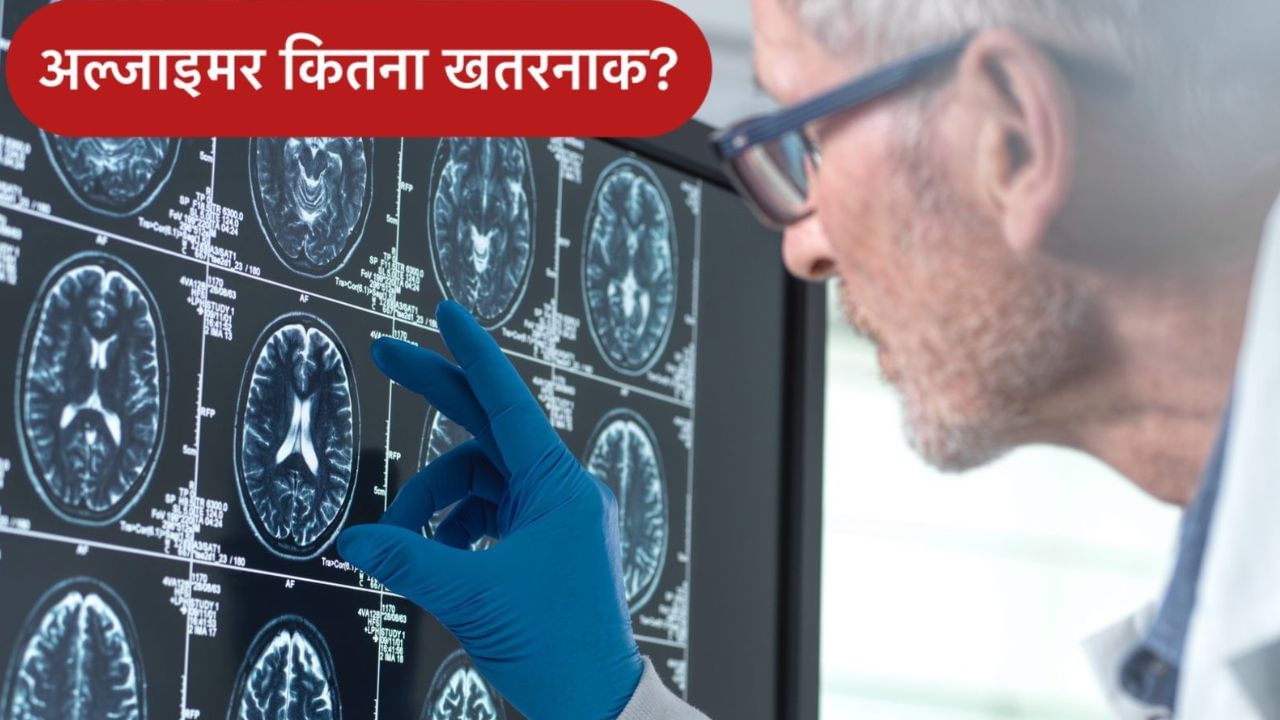How dangerous is Alzheimer’s disease?Image Credit Source: Getty Images
Alzheimer disease: Alzheimer’s is a serious neurological disease that gradually affects the person’s memory, thinking ability and daily functioning. Alzheimer’s is the most common type of dementia, in which the cells of the brain slowly begin to deteriorate. If this disease is not controlled on time, then the person’s memory can go. Even he can have trouble in doing his daily daily work.
According to Alzheimers Disease International (Adi), around 55 million people worldwide are currently suffering from dementia, most of whom are Alzheimer’s patients. This number can reach 78 million by 2030 and by 2050 to about 139 million. These figures show that this disease can become a major global health crisis in the coming time. The disease is mainly found in the elderly, but in some cases may affect even at an early age.
The main cause of Alzheimer’s is the abnormal deposition of beta-amyloid and tau protein in the brain. This deposition affects the nerve cells and the dialogue between them is broken. Age is the biggest reason for this, but habits like genetic factor, unhealthy lifestyle, high blood pressure, diabetes and smoking also promote this disease. Alzheimer’s ability to think and remember decreases due to Alzheimer’s. Initially, there are problems like forgetting small things of everyday, keeping a wrong place of something or forgetting the name. As it grows, the patient becomes unable to take care of himself and the situation becomes so serious that the patient becomes completely dependent on others and has a profound effect on the quality of life.
Why do people become victims of Alzheimer’s and what are its symptoms?
Dr. Daljit Singh, former HOD of Neurosurgery Department at GB Pant Hospital in Delhi It is said that the biggest threat to halzheimer is in people above 65 years of age, but due to other diseases it can also occur at an early age. Genetic changes, persistent mental stress, poor health of heart and brain also increase its risk. Initial symptoms include forgetting things repeatedly, wandering the way to familiar places, forgetting the general word and asking the same question repeatedly. Later, the patient has difficulty in interacting, arguing and making decisions.
In critical condition, the patient also loses the ability to identify family and friends. In addition, sleep problems, mood changes, irritability and depression can also be signed. Alzheimer’s is a slowly growing disease. Over time it affects the patient’s daily functioning and in the end the person becomes completely dependent on others.
Take care of brain health like this
Do activity that keeps the brain active regularly.
Do daily exercise and yoga.
Take healthy diet which includes fruits, vegetables and omega-3 fatty acids.
Avoid smoking and alcohol.
Keep blood pressure, diabetes and cholesterol controlled.
Get enough sleep and try to reduce stress.
Keep doing regular medical checkups on family history.
